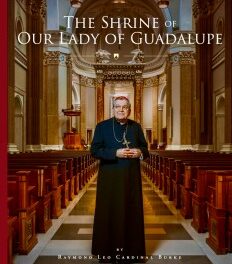We support our Publishers and Content Creators. You can view this story on their website by CLICKING HERE.
In her childhood, she often took the smallest things to heart, to the point of shedding tears. This aspect of her childhood seems to have left its mark on her spiritual doctrine of the Little Way. It shows how humility and profound “littleness” lead the soul to embrace God profoundly. But even in her littleness, Thérèse did not remain the fretful child she used to be. By the end of her life, this woman was unafraid to look at the fullness of reality that makes men and angels tremble: the sight of God. Thérèse’s vision of God—a realistic vision—is an underappreciated characteristic of the Little Way.
This way of St. Thérèse does not dodge the difficulties of becoming a saint. People might easily see her “littleness” as a lack of confidence. Instead, the Little Way is for those who dare to look reality in the eye and recognize the fullness of that reality in God. But what is seen in this vision? What is the glimpse of reality that leads people like Thérèse to live with heavenly humility? They see God, and they see that he is good.
We may not immediately see the relationship between humility and God’s goodness. Being humble, we might think, means focusing on our weaknesses. But that is not what it means to be a realist like St. Thérèse. Being a realist does not mean being a pessimist. The starting point of humility—the first step along the Little Way—is not realizing that we are bad, but that God is good.
If we fail to see God’s goodness and how much we rely on it, we will rely on our own goodness instead. As a result, we would not dare to be humble or little. If we think our goodness is all we have, why would we let it be brought low? Those who do not embrace the reality of God’s goodness, therefore, cannot be little. But if we embrace who God is, we will see that it does not matter how little we are. Saint Thérèse was a realist because she knew that being little means giving way to God whose goodness is greater than her own. This turned a fretful French girl into an unstoppable saint. She happily walked along the Little Way with a view of what is most real: the good God who will make her good too.
As for us, we are good because God is good. And so we also love because he first loved us. If we realize that our love depends on God’s goodness rather than our own, then our love will have no limits. Because even if we are limited, he is not. It is no wonder, then, that St. Thérèse was able to embrace her vocation after embracing the reality of God: the vocation of being love. “At last I have found my vocation. My vocation is love. In the heart of the Church, my mother, I will be love, and then I will be all things” (Story of a Soul, ch. 9).
✠
Republished with gracious permission from Dominicana (October 2024).
The Imaginative Conservative applies the principle of appreciation to the discussion of culture and politics—we approach dialogue with magnanimity rather than with mere civility. Will you help us remain a refreshing oasis in the increasingly contentious arena of modern discourse? Please consider donating now.
Photo by Sylvester Sabo on Unsplash (used with permission)
Share This Story, Choose Your Platform!
Go to Top

 Conservative
Conservative  Search
Search Trending
Trending Current News
Current News 







